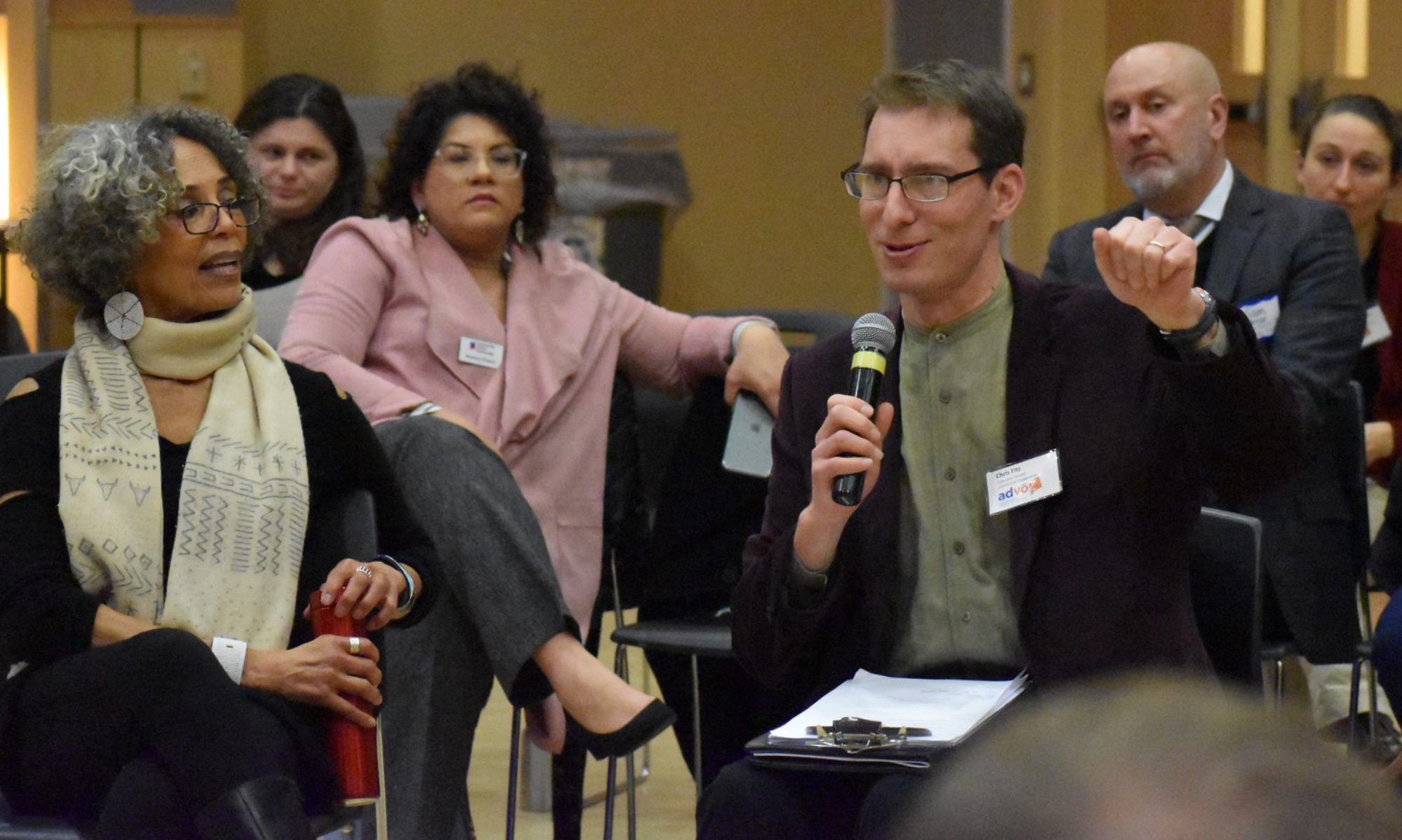Where do all these crazy ideas come from? And what is it that I actually do?
I was originally trained in integrative conflict mediation at the University of Massachusetts and Hampshire College by Leah Wing and Janet Rifkin. This type of mediation establishes a safe format for people to share stories and brainstorm solutions while in conflict – so they can solve their own problems. This is the fundamental premise on which all my facilitation work is based – empower and involve participants and then, voila, watch the magic unfold.
With groups of diverse participants, personalities, histories and power dynamics, this process is infinitely trickier – as you well know. And it’s also more satisfying to see to fruition. Enabling two people to live as empowered neighbors is an important skill. Enabling a whole block of neighbors to re-create their own community is another endeavor altogether and requires a more exhaustive skill set.
In pursuing this work, I have trained in and practiced a range of group processes and facilitation techniques, and I employ them in various situations according to what different groups need with their different cultures, contexts and growing edges. Some of these tools take the form of:
- Embodied surveying in which participants express their views by standing on various spectra. This focuses on group formation, empathy and diversity recognition;
- Group-building games involving physically active, large scale exercises – often outside – that present challenges that only collaboration can solve. This focuses on team building and leadership development;
- Role-playing using still-life snap shots or live-action situations that address commonly held situations for a group to examine and work on. This focuses on problem solving, diversity recognition and skill-building.
- Storytelling and story-based enactments to share personal and group history related to common issues. This cultivates empathy, diversity appreciation and unity in the group.
- Collaborative visualization and mapping exercises connected to action steps . This focuses on common goal setting and strategic planning.
These activities come from a broad-based movement of facilitators and facilitation systems world-wide and include a number of which I have significant proficiency:
- Basic Meeting and Group Facilitation – a general skill set ensuring balanced contributions in group discussion and planning work;
- Outdoor Education and Ropes Course Group Building – using highly active, physical games and problem-scenarios to activate groups’ teamwork;
- Playback Theatre – a format for participants and audience members to reflect on themes and tell stories, watching them dramatized on the spot, founded by Jonathan Fox (US);
- Theatre of the Oppressed – a system of games and dramatic forms that reveal new strategies for liberation and help us practice them, founded by Augusto Boal (Brazil).
In addition, I have trained in a number of other facilitation and group process forms that I draw on including:
- Contact Improvisation – an improvisational movement form based on physical contact, touch and weight sharing, founded by Steve Paxton and others (US);
- Direct Education – a method of training involving intense engagement in and practice of nonviolent direct action, founded George Lakey and Training for Change (US);
- InterPlay – a system of improvisational forms that encourage playfulness and unlock the creative child in all of us founded by Phil Porter and Cynthia Winton-Henry (US);
- Native American (Navajo) talking circles – a structured format for group deliberation on particular issues using traditional wisdom of the four directions and seasons;
- Nonviolent Communication – a set of personal communication techniques for clarifying relationships as a series of offers, requests and opportunities founded by Marshall Rosenberg (US);
- ProcessWork and WorldWork – a system of interactive embodied exercises that activate psychological principles of communication and collective consciousness based on Arnold Mindell (US);
- Technology of Participation – a series of group facilitation models based on the four-decade development of the Institute of Cultural Affairs (US & worldwide).
Together these disciplines comprise a menu of options that recognize the complexity and unique unfolding of groups in many different situations. For more information, see the included list of resources and links. Or ask me more about what I do with these diverse forms!
I look forward to serving your group with these unique, fun and powerful tools.
